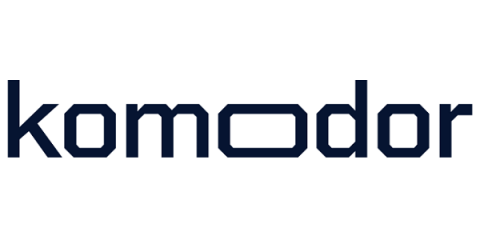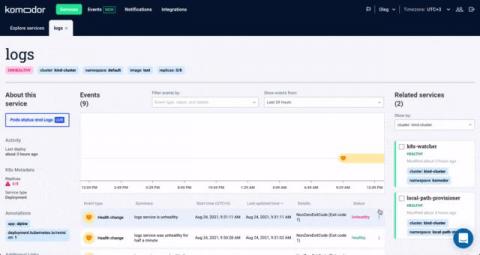Operations | Monitoring | ITSM | DevOps | Cloud
Komodor
Best Practices Guide for Kubernetes Labels and Annotations
Kubernetes is the de facto container-management technology in the cloud world due to its scalability and reliability. It also provides a very flexible and developer-friendly API, which is the foundation of its control plane. The effectiveness of the Kubernetes API comes from how it manages the Kubernetes resources via metadata: labels and annotations. Metadata is essential for grouping resources, redirecting requests and managing deployments.
Why we founded Komodor? Founders video
The Aftermath of the Facebook 6-Hour Outage
Less than 24 hours ago, the world came to a “social standstill” as Facebook, and its sister companies, WhatsApp and Instagram, became unavailable, leaving its 3.5 billion users in a flap. The outage, which lasted almost 6 hours, shut off access for users and businesses all over the world and caused ripple effects that we will likely continue to see in the immediate (and perhaps not-so-immediate) future.
Troubleshooting vs. Debugging
The life of a developer these days is more complicated than ever, as they are increasingly required to expand their knowledge across the stack, understand abstract concepts, and own their code end-to-end. A major (and very frustrating) part of a developer’s day is dedicated to fixing what they’ve built – scouring logs and code lines in search of a bug. This search becomes even harder in a distributed Kubernetes environment, where the number of daily changes can be in the hundreds.
5 Best Practices to Simplify Kubernetes Troubleshooting - DevOps.com Webinar
[Webinar] Removing CI/CD Blockers: Navigating Kubernetes with Codefresh & Komodor
Clubhouse Talk: Bleeding-Edge Kubernetes Projects
Below are main highlights from a recent Clubhouse talk featuring Elad Aviv, a software engineer at Komodor. The session was hosted by Kubernetes heavy-hitters; Mauricio Salatino, Staff Engineer at VMware, and Salman Iqbal, Co-founder of Cloud NativeWal.
[Webinar] Troubleshooting Permissions in Cloud-Native Products with Komodor & Authorizon
New 'Pod Status and Logs' Dash Saves Time and Unifies Execution
Time is invaluable. Besides being one of those can’t-argue-with universal truths, this is also one of the guiding principles behind Komodor; the promise behind our ‘troubleshooting efficiently and independently’ motto. ‘Pods Status and Logs’ is the latest of our timesaving features that enables you to quickly drill down in the pods of an unhealthy service, all from the comfort of your Komodor dashboard.










